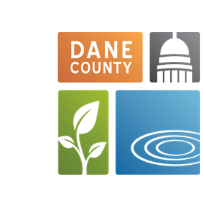
In Dane County, anything that enters our storm drains eventually makes its way through the storm sewer system to our lakes, rivers, and streams. When debris, trash, chemicals, paint or other substances are placed in our streets, storm drains or drainage ways it is the same as dumping it straight into our waterways. During rain storms only rain should enter the storm drain. If it’s not raining, nothing should be washing down storm drains or into area waters.
If you see illegal discharges or storm sewer dumping, click the button below to fill out an online report. You can also call MDCPH at (608) 266-4821 during business hours.
To report spills or discharges that require immediate attention during non-business hours (4:00 p.m. - 8:00 a.m.) or weekends (Saturdays and Sundays), please contact the Wisconsin Department of Natural Resources 24-hour Emergency Hotline at 1-800-943-0003.
An illegal discharge is any discharge of a potentially polluting substance that reaches a municipal storm sewer, drainage way, wetland, waterbody or groundwater. An illegal discharge can be deliberate, such as an intentional disposal of paint down a storm sewer, or accidental, like with a dumpster. Below, you'll find a list of some types of illegal discharges that are easy to spot. For a more complete list, visit the "What should I report?" tab.
If you see any of these items being illegally discharged, we ask that you report it using the Report an Illegal Discharge page.
When substances are dumped into our storm drains, it travels untreated into the nearest waterway when it rains. Here are a few examples of why this is a problem:
Some of the most common offenders for illegal discharges are listed below:
We work with the local municipality or Public Health Madison & Dane County to investigate discharges and stains that show waste was dumped on streets or in gutters and storm sewers to:
If we are able to determine who was involved in the illegal discharge, we will typically follow up with the individual or company involved using the following methods.
To prevent water pollution from threatening our waters, Dane County passed an illicit discharge ordinance in 2021. This ordinance prohibits illicit discharges and aims to prevent and eliminate illegal discharges. The ordinance also gives Dane County enforcement authority.